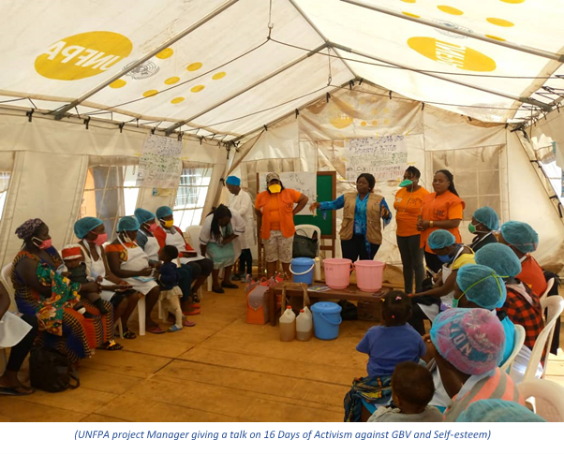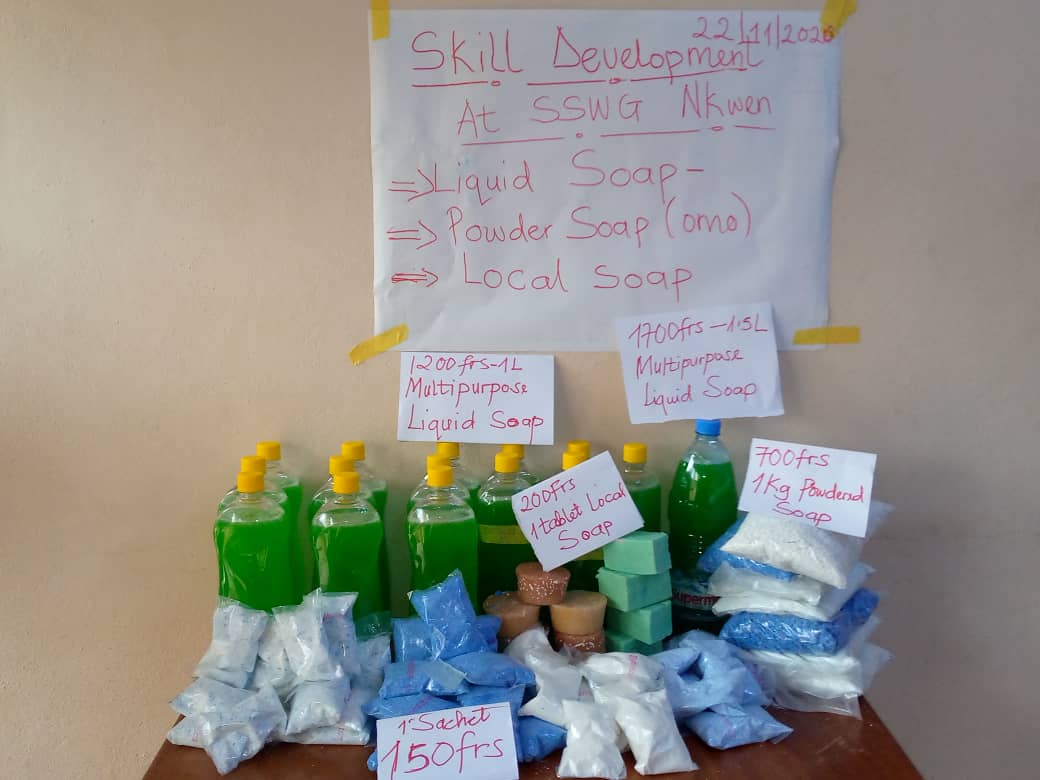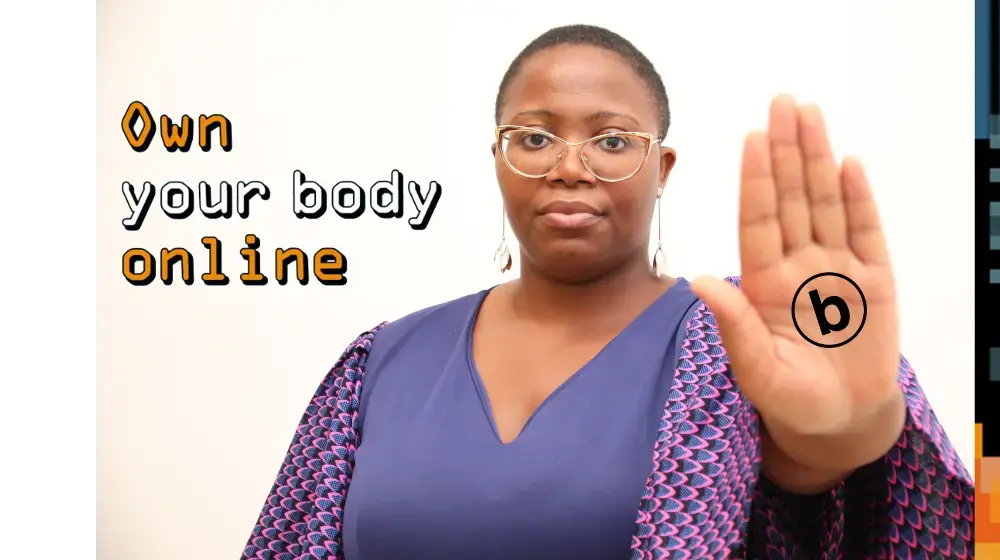In the framework of its humanitarian response, UNFPA Safe Spaces in the North West Region of Cameroon served as training grounds in livelihood and skill development for about 150 vulnerable women and girls, mostly survivors of Gender-Based Violence (GBV) during the last quarter of 2020. The Safe spaces of Ntarinkon, Nkwen, Ndop, Mengwi and Santa, provided training in domains such as household soap production, pastry making and the production of snacks. Among the participants were women and girls fleeing the violent armed conflict from surrounding villages such as Wum, Bali, Bafut and Batibo.

sensitisation talks to survivors.
Photos UNFPA/2020
The four days capacity building training was carried out in each of the five safe spaces, enrolling about 30 participants each and sub-dividing them into smaller workshops per skill. They witnessed a great show of interest from participants, who for the most have lost property and livelihood in the course of the crisis.
Among them, Sunita[1], a 30year old mother of 3 who fled her village after their home was burned down by armed men in the course of the ongoing crisis. Before going back to their family home, Sunita had escaped murder from the hand of her second partner and father of her third child. Her previous union was as a result of a forced and early marriage, at the age of 15, characterised by domestic violence. Her second partner, being just as violent got her packing back to their village to preserve her life. Besides the 3 children in her care, Sunita also has to provide for her physically disabled mother and 5 siblings. Attending the training at the Nkwen Safe Space, this GBV survivor shared her views: “This initiative is really timely for me. It will help me start a trade to take care of my family. I will do so once I get enough start-up capital.”
According to Kongnyuy Julita, UNFPA’s GBV Expert for the North West Region who accompanied the beneficiaries throughout the trainings and enlightened them on UNFPA’s work, “Most of the trainees were able to overcome their fears, enhance their self-esteem and develop a greater zeal for survival thanks to the educative talks and the new skills acquired.”
Besides the skill development training, the safe space staff sensitise beneficiaries on the various forms of Gender-Based Violence and the services available for survivors. Furthermore, a GBV referral pathway was developed for the region. This is a directory of service providers made available to organisations managing GBV issues to guide them on the types of services required by survivors and where to get these services. The pathway also provides tips on survivor care and COVID-19 prevention and protection measures for GBV service providers
Since 2018, UNFPA has set up 7 Safe Spaces across the North West Region to enable distressed women and girls to re-build their social network, acquire relevant skills, gain access to safe and non-stigmatising multi-sectorial

soap made by survivors at the Nkwen
Safe Space. Photo/UNFPA 2020
GBV response services, and receive information on issues relating to women’s rights, health and services. Thanks to UNFPA’s outreach activities organised in vulnerable Internally Displaced and host communities, more women come towards these safe spaces to receive the available services they need in the heart of the ongoing humanitarian crisis.





